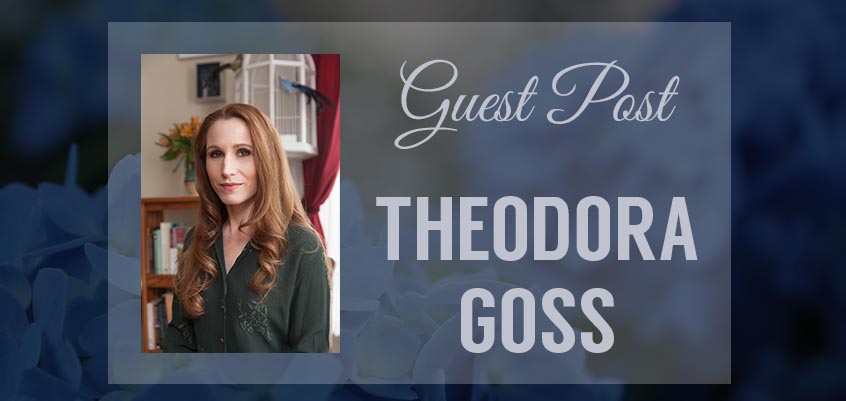Today, I read an article over at The Federalist (Google recommended it to me because it was about publishing, otherwise I would have been blissfully unaware). It is titled “The Book World Is Getting Way Too Politicized. Here’s What To Do About That.”
The article begins with an anecdote about how the author and her children love their local library. A good start, considering libraries need — and deserve — a lot of love. Then:
“Yet even in our library I see echoes of cultural trends that threaten to separate readers from true diversity of ideas. Librarians, influential reviewers, and the folks in the publishing industry are gatekeepers to many people’s reading, and these three groups are overwhelmingly progressive. […] Conservatives, particularly Christians, must reckon with this issue. By definition we are people whose beliefs are based on recordable, objective truth. Reading and writing books is what we do. […] ‘De-platforming’ dissident voices is the new weapon de jure [sic], and it’s no longer confined to social media or university speaking schedules.”
The author spends the rest of the article outlining the issues she finds within publishing:
Problem A: Publishers Isolate Conservative Books
What to Do: Actively Support Diversity
Problem B: Publishers Let Activists Limit What’s Published
What to Do: Use Older Books to See People are Complicated
Problem C: Public Libraries Are Being Weaponized
What to Do: Use Your Local Library with Caution
‘The Ghettoization of Christian Fiction’
All of these sections are filled with language that implies ‘conservative’ and ‘Christian’ families are being attacked. The author says libraries are being “weaponized” by progressives, crying that materials for “the new sexual revolution” are being pushed at library events. She complains that librarians aren’t conservative “even though” they receive public funds, that publishers have separate imprints for conservative books, that publishers employ sensitivity readers.
She says that in order to combat these things, readers should read old books instead of new ones “to see people are complicated.” She says readers should support their favorite conservative authors by buying and reviewing their books (a tactic ‘progressives’ also use to promote diversity). She implies that conservative books need their safe space, too, and that by publishing more of these books we will improve ‘diversity.’ She refers to ‘the ghettoization of Christian fiction’ as if giving them their own imprint involves “a shorter list of places to which to submit their work and perhaps fewer chances of making it onto shelves.”
Let’s Talk About Reality
Conservative Christian books are not being attacked. Broadening the publishing world’s horizon is not the same as attacking the current and past majority. Conservative and Christian fiction will always be around, and has always been around — publishing is just also publishing other things. This is the same argument that many
The author’s attitude toward libraries seems to be two-sided. On the one hand, she loves libraries! They deserve to be supported! On the other hand, they are being “weaponized” by “the new sexual revolution” and she is offended that “even though libraries receive public funding to conserve books, librarians as a group are not conservative.”
Allowing people to read about diverse ideas and characters written by diverse authors seems to be a good use of libraries, which are sponsored by the State and thus completely separated from any religious affiliation. The author seems to equate Christianity with Conservatism in much of this article, so I felt that mentioning the separation of Church and State was necessary. In fact, the author of this article calls for “more diversity” in books, but it seems like she may actually be arguing for less diversity under the guise of calling for more.
As I mentioned above, including more diversity doesn’t mean attacking the majority. But it seems that idea has escaped this author, who seems to be fear-mongering by implying that conservative books will be
She seems to have missed the long string of progressive books throughout history that have been stifled, outlawed and burned by conservatives.
Moving on:
If all of the Big 5 publishers have their own conservative-minded imprints, how does this limit opportunities to query editors? In fact, these conservative imprints may give authors more opportunity to be published, because editors at these imprints are more likely to support these manuscripts. Publishers similarly have imprints for a huge amount of specific niches — HarperCollins, for example, has 23 “general” imprints, 11 “Children’s” imprints, eight “Harlequin (Romance)” imprints and 13 “Christian Publishing” imprints. Notice that there are still a whopping 13 Christian imprints.
However, the author also took issue with what happens after these books are chosen by an imprint.
Ah, sensitivity readers. It seems like they are everyone’s favorite punching bag lately, with conservatives constantly crying out “censorship.” Listen to Fiction Forward’s interview with Beta Reader Cat Skinner to learn a little more about the world of beta and sensitivity reading, which is absolutely nothing new. According to The Seattle Times, publishers have long relied on experts, such as historians, psychologists, lawyers and police officers. Even 30 years ago, Scholastic hired child psychologists read over the plot and dialogue in “The Baby-Sitters Club” because the books talk about things like eating disorders and divorce — topics that needed to be talked about, but also needed to be reviewed before releasing the books to young readers.
Not only is sensitivity reading nothing new — it’s also nothing to worry much about. As we discussed with Cat Skinner, sensitivity and beta reader advice can be taken or ignored. It’s all up to the author or editor who requested the reader’s opinions, and often the author has final say. If an editor pushes too hard, an author can always refuse to publish with that imprint. Roxane Gay, for example, withdrew one of her books when the publisher gave Milo Yiannopoulos a six-figure book deal. She didn’t agree with a decision the publisher made, so she withdrew her manuscript. Authors who feel their work isn’t being respected can always do the same.
What to Take Away From This (TL;DR)
- Libraries are awesome and everyone should support them even if they are ‘weaponized in the new sexual revolution’ (which is a plus for me, TBH).
- Just because an organization is funded by the government doesn’t mean it needs to be staffed by conservative or Christian folks.
- Diversity is amazing and necessary, and allowing more authors and ideas to be published is absolutely not the same as attacking conservative writers.
- Diversity is not the same as trying to demonize diverse readers, writers, and publishers in order to push a specific subgenre of books. I don’t know why I have to say this but apparently, I do.
- Christian imprints don’t cut down on Christian writers’ opportunities; HarperCollins alone has 13 Christian imprints listed on their
site, and querying editors whose beliefs are similar toyours ups the probability that your book will be published. - Sensitivity readers did nothing wrong! They have been around for a long time, they have a very important role in publishing, and authors/editors can always take or discard any sensitivity reader’s comments as they see fit. Even if an editor wants to change something and an author wants to keep it, they can always pull their manuscript and take it to a different publisher.
- Calm down. No one is trying to make conservative or Christian literature go extinct.


